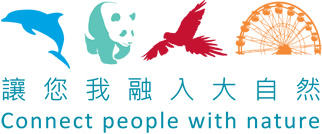Ocean Park and Ocean Park Conservation Foundation, Hong Kong (OPCFHK), together with the Agriculture, Fisheries and Conservation Department (AFCD), have been closely monitoring the sighting of the whale feeding in the waters off Sai Kung since it was reported in mid-July. While the sighting is exciting, the whale was spotted with propeller wounds on its back, which raises concerns about its safety. In response, the team is taking steps to confirm the whale’s species and assess its condition.
The whale is believed to be a Bryde's whale, which is a tropical whale that is typically found in tropical regions. Hong Kong falls within its secondary range, so it is rare but not abnormal to see these whales in Hong Kong waters. These whales mainly feed on schooling fish such as sardines, anchovies, mackerels and herrings. Over the past week, the whale has been spotted feeding using the “trap-feeding” technique, which involves remaining stationary at the surface of the water, opening their massive jaw, engulfing prey-laden water in their buccal pouch, and then filtering the water out through baleen plates to be left with a mouthful of food.
Based on photos and videos taken by experts, the spotted whale is estimated to be around seven metres long. Ocean Park and OPCFHK will continue to work closely with AFCD to assess the whale’s condition and determine the best approach to assist the animal.
Over the weekend, a crowd of the public was spotted approaching the whale, which causes stress and can lead to life-threatening consequences such as inability to rest or feed and trauma. Ocean Park and OPCFHK are concerned about the well-being of the animal and want to ensure that it is not disturbed or harmed in any way.
Compass Chan, Scientific Officer of Ocean Park Conservation Foundation, Hong Kong, explained, “Whales are sensitive creatures and can be easily affected by loud noises, sudden movements and human interference. Additionally, approaching the whales can disrupt their natural behaviour and migration patterns, which can have a long-term negative impact on their well-being.”
Experts from Ocean Park believe that the whale needs special care and attention by specialists, and the team is working closely with AFCD to monitor its condition. Philip Wong, General Curator, Zoological Operations & Conservation of Ocean Park, added, “Our team has been observing the waters off Sai Kung since 14 July and will continue to do so. We will take seawater samples for environmental DNA analysis upon next spotting of the whale to attempt to identify the species present.”
Ocean Park and OPCFHK strongly urge the public to refrain from crowding and chasing the whale, as it can be dangerous and harmful to both the animal and human beings. The public is recommended to maintain a safe and respectful distance from the whale.

Pengalaman
- Latest Events & Occasions
- Panda Zone
- Atraksi
- Bersantap & Belanja
- Rencanakan kunjungan Anda
- Berinteraksi dengan Hewan
- Parents' Panel

Annual Membership
- Ocean Park Annual Membership
- Member Offers
- Current Members
- Ticket Conversion

Rencanakan Acara Anda

Education & Conservation






